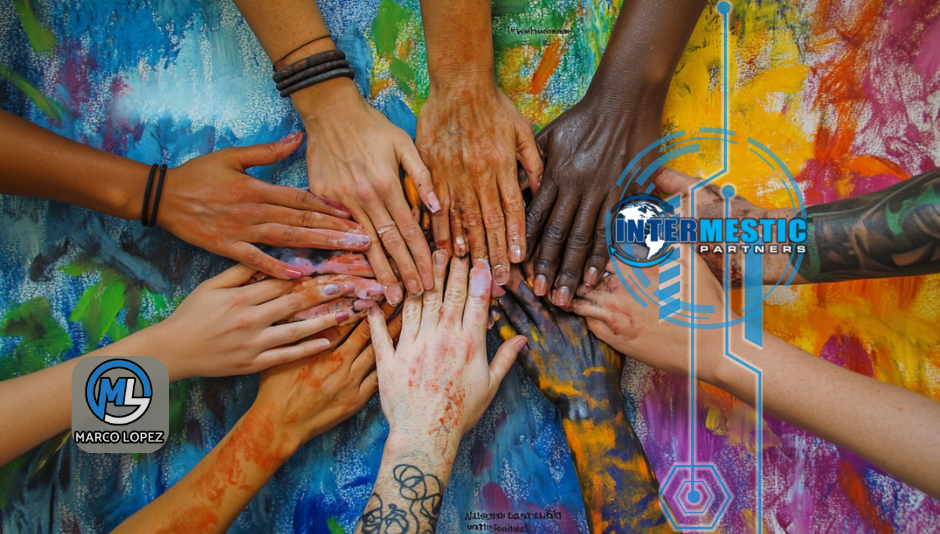Borders of Faith: How Religious Organizations Are Reshaping Global Partnerships
- Marco Lopez

- Apr 16, 2025
- 2 min read

The Unsung Engines of Global Impact
Faith-based organizations (FBOs) have long influenced global development, often reaching farther than governments or NGOs. Rooted in values of service, trust, and compassion, they deliver humanitarian aid, build schools, fight injustice, and spark peace in the world’s most fractured regions.
As someone who’s served as a border mayor, led Arizona’s Department of Commerce, and been Chief of Staff at U.S. Customs and Border Protection, I’ve witnessed firsthand the credibility these organizations carry in divided communities. Through Intermestic Partners, an international business advisory firm I founded in 2011, I’ve seen how FBOs often unlock doors in cross-border development where politics cannot.
Why Faith-Based Organizations Matter
Faith-based organizations succeed because they:
Build deep local trust across cultures and languages
Deliver services quickly and with moral credibility
Support long-term projects like schools, clinics, and workforce training
Promote shared ethics that transcend borders
Did you know? Catholic Relief Services has worked in over 100 countries—more than the U.N. Peacekeeping forces have operations in.
The Power of Cross-Border Collaboration
When FBOs go global, they do more than provide aid—they:
Strengthen regional economies via micro-enterprise programs
Facilitate cultural understanding through interfaith partnerships
Enhance education, healthcare, and job access
Promote peace in post-conflict areas and disaster zones
Examples like Islamic Relief Worldwide and Catholic Relief Services demonstrate how faith-based organizations are not just charitable, but strategic—forming agile networks that adapt faster than many bureaucratic institutions.
Challenges and Solutions
Of course, collaboration isn’t easy. Faith-based groups face:
Legal hurdles in authoritarian regions
Doctrinal differences between faith traditions
Language and cultural misunderstandings
Logistical barriers in remote or post-crisis zones
Yet many are overcoming this through interfaith dialogues, local partnerships, and training in cultural competency—tools that businesses, governments, and development firms alike are now adopting.
A Future Fueled by Faith and Strategy
As geopolitical tensions rise and development needs grow, the value of faith-based cross-border alliances is only increasing. The future points to:
Expanded roles in post-conflict reconstruction
Joint ventures in sustainable infrastructure
Coalitions that blend faith, business, and diplomacy
At Intermestic Partners, we work alongside top global institutions to connect these dots—helping mission-driven initiatives scale across borders with strategy, trust, and measurable impact.
Conclusion
In a fragmented world, faith-based organizations remind us that shared values can still unify. They are not only spiritual stewards but pragmatic actors in today’s global arena—playing essential roles in development, diplomacy, and community resilience.
Let’s collaborate to harness their potential. Reach out to explore how Intermestic Partners can help connect your vision to impact.
.png)




TSO777
SLOT GACOR
SLOT TOTO
SLOT QRIS
TOTO TOGEL
SLOT777
SLOT MAXWIN
SITUS SLOT
SITUS TOTO
SITUS GACOR
SITUS TOTO TOGEL
SITUS SLOT QRIS
SITUS SLOT ONLINE
TSO777 LOGIN
TS77CASINO
TS77CASINO DAFTAR
TSO777SPORTS
TSO777SPORTS LOGIN
GACOR777
LINK ALTERNATIF SLOT GACOR
SLOT88
LINK ALTERNATIF SITUS TOTO GACOR
RTP LIVE SLOT
LOGIN TSO777
DAFTAR TSO777
AGEN TSO777
SITUS TSO777
LINK ALTERNATIF TSO777
LINK TSO777
SLOT TSO777
TSO777 LOGIN
TSO777 DAFTAR
TSO777 AGEN
TSO777 SLOT
TSO777 LINK ALTERNATIF
RTP SLOT HARI INI
tso777 slot login
tso777 agen slot gacor
tso777 alternatif login
rtp tso777
tso777 agen slot
rtp tso777 hari ini
tso777 slot rtp
tso777 rtp
tso777 slot login link alternatif